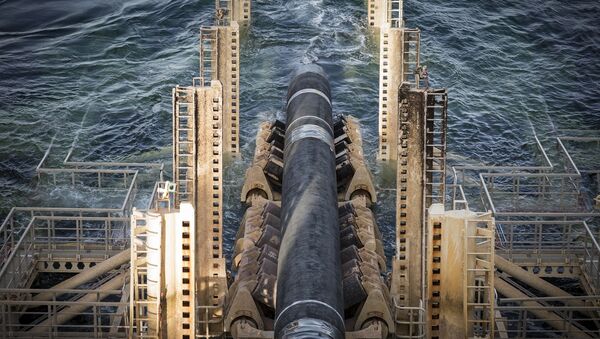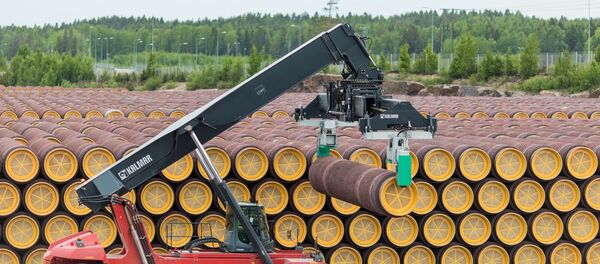After years of unsuccessfully attempting to persuade Europe, and specifically Germany, to red light the Nord Stream 2 project, the US has decided to switch to imposing sanctions on it, The Wall Street Journal reported, citing anonymous sources.
The sanctions will be introduced via amendments to the Countering America's Adversaries Through Sanctions Act (CAATSA), which is currently being used to impose sanctions on Moscow. The sanctions will reportedly affect the project's investors and companies employed in laying pipe for the pipeline.
READ MORE: US Pushing Own Interests in EU When Blasting Nord Stream 2 — Bavaria Minister
According to an anonymous member of the US Secret Service, cited by the newspaper, US President Donald Trump sees implementation of the Nord Stream 2 as incompatible with the military umbrella over Europe that the US sustains. In his talks with German Chancellor Angela Merkel he reportedly demanded that Germany drop its energy contracts with Russia.
"Angela, you got to stop buying gas from Putin", Trump reportedly said.
A German official, interviewed by The Wall Street Journal, noted that sanctions against the EU-Russia pipeline will affect not just relations between the US and Germany, but will also lead to Washington's confrontation with all of Europe. The official noted that the EU will spare no effort to finish Nord Stream 2's construction.
Earlier, Trump publically castigated Europe over paying for Russian gas while asking Washington to protect it from alleged Russian aggression. He suggested that the EU should stop buying Russian gas and switch to more expensive American LNG. While European leaders haven't ruled out using LNG, they haven't supported the idea of dropping the pipeline project either, noting that there is economic necessity for its existence.
READ MORE: Germany, Russia Defend Nord Stream 2 As France Joins EU Anti-Pipeline Move
Moscow has been against politicising the Nord Stream 2 project, stressing that it's a purely commercial venture. Russia has also slammed Washington's claims that the pipeline will negatively affect fair competition on the European energy market, noting that forcing the EU to buy American gas for a price 30% higher is also not helping the competitiveness of the market.



